UPDATE, 1:55 p.m. Friday, Feb. 6: MISCHIEF WINS, “SMALL POTATOES” LOSE: I didn’t think he could do it, but he did. Today the U.S. Senate, by a ridiculous 73-24 vote, passed Sen. Tom Coburn’s amendment to the economic stimulus bill to bar anything with even the faintest whiff of culture from getting any stimulus money. Here’s the requisite passage from Congressional Quarterly:
“Lawmakers also voted 73-24 to adopt a Tom Coburn , R-Okla., amendment to place tighter restrictions facilities that can be built with money from the bill. The Coburn amendment would bar spending on casinos, aquariums, zoos, golf courses, swimming pools, stadiums, community parks, museums, theaters, art centers, and highway beautification projects.
“That’s broader than prohibition in the House-passed bill, which applied only to casinos, aquariums, zoos, golf courses and swimming pools.”
The vote is astonishing, and preposterous, and I can only guess that the amendment was passed with so little thought or debate simply because the Senate is in a pedal-to-the-metal rush to get this thing off the assembly line and onto the streets. Coburn may be a fool, but he’s a canny fool — he knows how the system works, and he knows how and when to manipulate it. This ugly bit of mischief could still disappear from the final bill, of course, but now it’s going to take a lot of work and a lot of ruckus-raising. It’s officially time to get mad, get on the horn, bug your congressional delegation and get something done about this.

News flashes from all sorts of fronts today about the latest Molotov cocktail from Sen. Tom Coburn, the Republican from Oklahoma known for his quixotic attempts to deliver America from the clutches of common sense. It was Coburn, Oregonians might recall, whose threat of filibuster scuttled last year’s otherwise certain passage of the Lewis & Clark Mount Hood Wilderness Act. That act finally passed the Senate last month, as part of a broader wilderness bill, on a 73-21 vote — over Coburn’s objections.
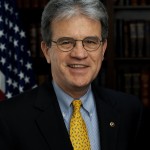 This time out Coburn’s tackling the omnibus economic bailout plan — surely a target for some tough critical thinking: How many Dutch boys with their fingers in the dike does it take to keep the thing from bursting, anyway? Unfortunately, it’s not just Coburn’s finger that’s all wet. His Amendment No. 175 to the economic stimulus bill is tough, and it’s critical. But it’s utterly lacking in thinking.
This time out Coburn’s tackling the omnibus economic bailout plan — surely a target for some tough critical thinking: How many Dutch boys with their fingers in the dike does it take to keep the thing from bursting, anyway? Unfortunately, it’s not just Coburn’s finger that’s all wet. His Amendment No. 175 to the economic stimulus bill is tough, and it’s critical. But it’s utterly lacking in thinking.
Here’s how Coburn proposes to guard your pocketbook:
“None of the amounts appropriated or otherwise made available by this Act may be used for any casino or other gambling establishment, aquarium, zoo, golf course, swimming pool, stadium, community park, museum, theater, arts center, or highway beautification project, including renovation, remodeling, construction, salaries, furniture, zero-gravity chairs, big screen televisions, beautification, rotating pastel lights, and dry heat saunas.”
Note that. No money for museums, theaters, arts centers, aquariums, zoos, highway beautification, apparently any sort of beautification at all. I’m not really sure what a rotating pastel light is, but none of that, either. Fortunately I don’t golf. But I do like a good sauna now and again.
It’s easy to laugh this off as just another crackpot amendment that’s going nowhere — except that Coburn has a history of making this sort of thing stick, at least temporarily. I doubt it’ll work this time, because with the Democratic gains in the Senate from the last election he’s lost his biggest tool, which was his ability to forestall a 60 percent Senate vote to halt filibuster. His power has always been the power to make mischief, not the power to actually create anything.
Still, it’s a very good idea to call your senators (the Capitol Switchboard number is 202-224-3121) or zip off an email to them. If you live in Oregon, that means Ron Wyden and Jeff Merkley. If you live in Washington, it means Maria Cantwell and Patty Murray. If you live in another state, check here for contacts. The danger isn’t that anywhere near a majority of senators agree with Coburn. The danger is that, in their eagerness to get some sort of broad-stroke stimulus package passed as quickly as possible, a majority will be willing to horse-trade away this “small potatoes” stuff. In D.C., that’s how mischief’s made.
It seems silly to even have to bring it up, but here goes: Museums and theaters and aquariums are part of the economy, too. And they’re a potentially multiple-payoff part of the economy. They don’t just create jobs for themselves, they feed tourism, hospitality, construction (which means such things as logging and mining and steelmaking). Increasingly, in our information-driven society, the arts play a big role in driving entire regional economies: People move to cities specifically for their arts scenes. That’s certainly true of Portland. Oh: And all that “beautification”? It creates good, lasting things. The picture at the top of this post is of Timberline Lodge. It’s on Mt. Hood, and it was built during the Great Depression as a project of the federal government’s Works Progress Administration.
The WPA was good to the arts, and in return the arts were good to America. From murals in small-town post offices to architectural treasures like Timberline Lodge to theater and dance and music projects to photographic documentation of the Depression to the wonderful, sadly unfinished, collection of writings about American foodways, our previous mass economic stimulus package had the good sense to recognize that an “economy” is only a financial blueprint of a whole society.
Am I nervous about the economic stimulus plan? You bet. But I’m a lot more nervous about the Tom Coburns of the world than I am about helping a museum keep from falling into the abyss of economic failure. Keeping our shared culture alive, I’m confident, is a very good idea.
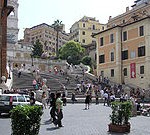 Cousin Rick, a far-flung Scatter-friend, writes from Paris. Writes! On writing paper, with hand-formed, fully-formed letters and elegant sentences. Like tooled leather, it seems to me.
Cousin Rick, a far-flung Scatter-friend, writes from Paris. Writes! On writing paper, with hand-formed, fully-formed letters and elegant sentences. Like tooled leather, it seems to me. 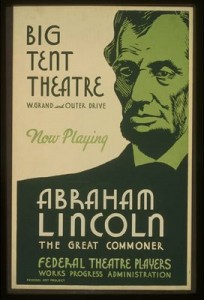 So much for bipartisanship. All of a sudden it feels like we’re back in the bad old days of the 1980s and ’90s “culture wars,” when the right-wing juggernaut raised fears of
So much for bipartisanship. All of a sudden it feels like we’re back in the bad old days of the 1980s and ’90s “culture wars,” when the right-wing juggernaut raised fears of 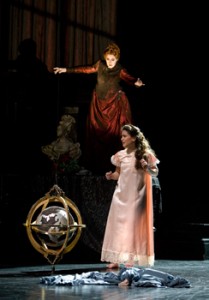 “This score is my bible,”
“This score is my bible,”  “We change what we remember, then it changes us, and so on, until we both fade together, our memories and ourselves. Something like that.†This is Salman Rushdie on the way our lives intertwine with the history of rock ‘n’ roll. The Ground Beneath Her Feet (1999 ) is a novel about Ormus and Vina, Indians raised in Bombay, who become the first couple of international rock. Propelled by Ormus’ words and melodies and Vina’s voice, they blaze across the rock firmament as VTO (“Vertical Take Offâ€), their lives mirroring the rise and fall of many sacred monsters of rock the last half century.
“We change what we remember, then it changes us, and so on, until we both fade together, our memories and ourselves. Something like that.†This is Salman Rushdie on the way our lives intertwine with the history of rock ‘n’ roll. The Ground Beneath Her Feet (1999 ) is a novel about Ormus and Vina, Indians raised in Bombay, who become the first couple of international rock. Propelled by Ormus’ words and melodies and Vina’s voice, they blaze across the rock firmament as VTO (“Vertical Take Offâ€), their lives mirroring the rise and fall of many sacred monsters of rock the last half century. I thought about Rushdie’s novel watching the documentary film Love Story, about the legendary L.A. band
I thought about Rushdie’s novel watching the documentary film Love Story, about the legendary L.A. band 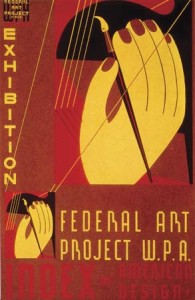 As
As  Everyone knows that this an era of shrinking resources at your local newsgathering operation (which we once called a “newspaper”). That means fewer staff members and less space in the paper for just about every section and department. And that in turn means a reconsideration of almost all of the coverage habits that have been developed over the decades.
Everyone knows that this an era of shrinking resources at your local newsgathering operation (which we once called a “newspaper”). That means fewer staff members and less space in the paper for just about every section and department. And that in turn means a reconsideration of almost all of the coverage habits that have been developed over the decades.
 This time out Coburn’s tackling the omnibus economic bailout plan — surely a target for some tough critical thinking: How many Dutch boys with their fingers in the dike does it take to keep the thing from bursting, anyway? Unfortunately, it’s not just Coburn’s finger that’s all wet. His Amendment No. 175 to the economic stimulus bill is tough, and it’s critical. But it’s utterly lacking in thinking.
This time out Coburn’s tackling the omnibus economic bailout plan — surely a target for some tough critical thinking: How many Dutch boys with their fingers in the dike does it take to keep the thing from bursting, anyway? Unfortunately, it’s not just Coburn’s finger that’s all wet. His Amendment No. 175 to the economic stimulus bill is tough, and it’s critical. But it’s utterly lacking in thinking.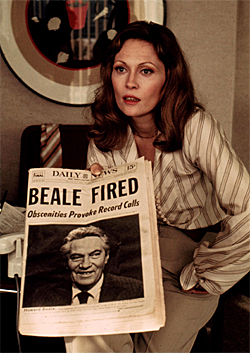 So last night, after the Super Bowl, I was channel-surfing. I’m not proud of it, but there you have it. Sometimes I think that’s the way the universe is trying to talk to me: If I happen upon the “Dog Whisperer,” I might conclude that I’m not calm and assertive enough (or maybe not submissive enough? Sometimes I get mixed messages). If “Ask This Old House” is working on someone’s water heater, then I immediately suspect that mine needs some lovin’.
So last night, after the Super Bowl, I was channel-surfing. I’m not proud of it, but there you have it. Sometimes I think that’s the way the universe is trying to talk to me: If I happen upon the “Dog Whisperer,” I might conclude that I’m not calm and assertive enough (or maybe not submissive enough? Sometimes I get mixed messages). If “Ask This Old House” is working on someone’s water heater, then I immediately suspect that mine needs some lovin’. 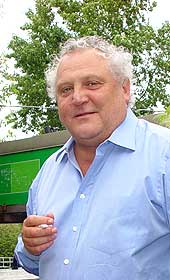 “I’m a stranger here myself.â€
“I’m a stranger here myself.†
 More poetically (and less argumentatively), the use of punctuation is a handy writers’ tool in the construction of mood and suggestion: “He’s driving fast fast fast” is simply faster to a reader’s eye than “He’s driving fast, fast, fast” — and if the blur of speed is what you’re trying to get across, using commas is like driving in the Indianapolis 500 with your emergency brake on.
More poetically (and less argumentatively), the use of punctuation is a handy writers’ tool in the construction of mood and suggestion: “He’s driving fast fast fast” is simply faster to a reader’s eye than “He’s driving fast, fast, fast” — and if the blur of speed is what you’re trying to get across, using commas is like driving in the Indianapolis 500 with your emergency brake on.